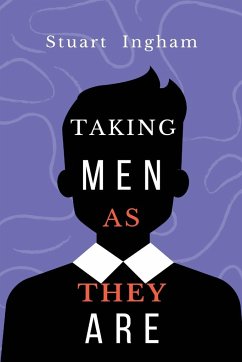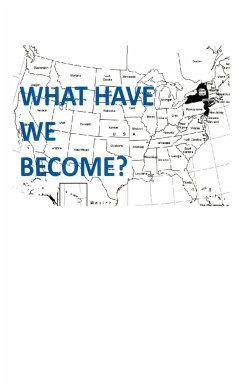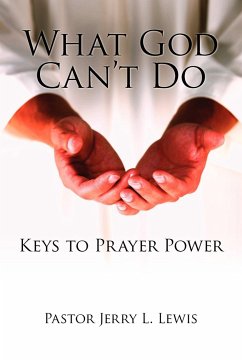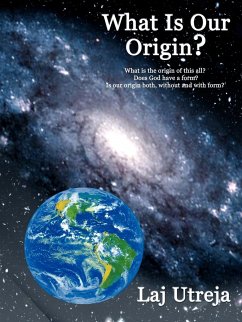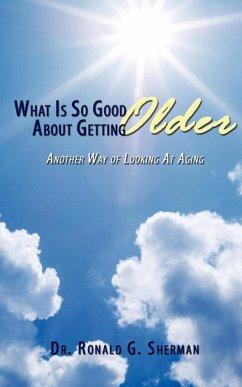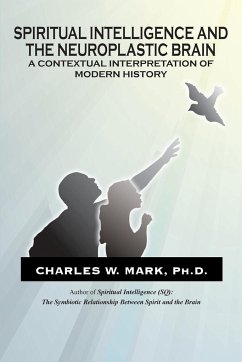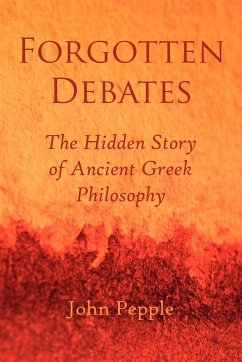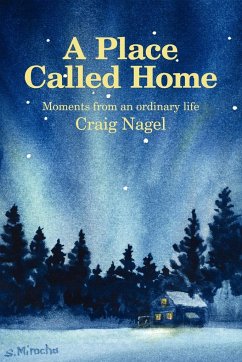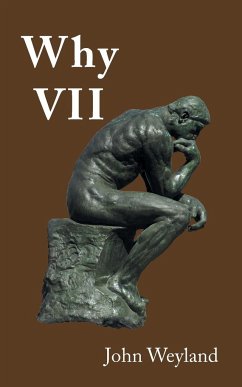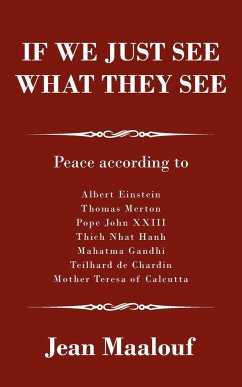
If We Just See What They See
Peace according to
Versandkostenfrei!
Versandfertig in 1-2 Wochen
24,99 €
inkl. MwSt.

PAYBACK Punkte
12 °P sammeln!
Why do we keep talking about peace, and never seem to have peace? Why does violence tend to captivate our attention more than peace does? What is the real cause of violence? Who/what/where is our "enemy"? Why do we fight the symptoms instead of the malady? Are there new ways of thinking and living that lead to a new world order and a brighter future? To such questions and to many more, this book has answers. They are the challenging answers of Albert Einstein, Thomas Merton, Pope John XXIII, Thick Nhat Hanh, Mahatma Gandhi, Teilhard de Chardin, and Mother Teresa of Calcutta. These well-known a...
Why do we keep talking about peace, and never seem to have peace? Why does violence tend to captivate our attention more than peace does? What is the real cause of violence? Who/what/where is our "enemy"? Why do we fight the symptoms instead of the malady? Are there new ways of thinking and living that lead to a new world order and a brighter future? To such questions and to many more, this book has answers. They are the challenging answers of Albert Einstein, Thomas Merton, Pope John XXIII, Thick Nhat Hanh, Mahatma Gandhi, Teilhard de Chardin, and Mother Teresa of Calcutta. These well-known and highly respected masters convey to us a message of higher consciousness that puts all our issues-political, social, psychological, philosophical, and theological-in the light of the fullness of life and truth. They point, in one way or another, to the one and same essence of what makes us all truly human. The seven semi-scholarly essays of this book are gathered under one title: If We Just See What They Saw. Each essay directly connects the reader to these visionary architects of human development-one at a time. This profound interaction with them will allow readers to insightfully choose a better way of thinking and living in the context of our today's changing world. There should be another way. Otherwise, "If [we] do not change direction," as a Chinese proverb says, "[we] are most likely to end up where [we] are going"-to self-destruction. This book is not just another book on peace, and has nothing to do with any one particular war or any one particular aspect of violence-any aspect of violence is a symptom not the malady. The real battlefield is not in the symptoms, but as Teilhard de Chardin saw it, "in man's mind and soul." And this is where the real battle takes place initially, and this is where it should end. Aiming at reaching the objective scholarly truth by transcending ideologies, political parties, nations, religious beliefs, circumstances, places, times, and





